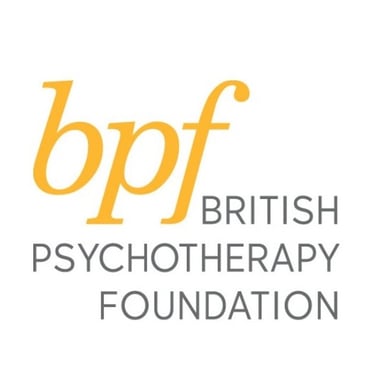Background
An important part of the therapeutic process is the setting, which is private and confidential. Each psychotherapy session itself will involve a conversation where you will be encouraged to say whatever is going through your mind. This will provide an opportunity to express yourself, but the therapist will also be noticing hidden patterns and meanings. A psychodynamic psychotherapist will be empathic and closely tuned in to what is taking place, but they may often remain quieter and more neutral than other approaches, keeping personal feelings and reactions private most of the time.
Our patterns of relating to others influences everything we do and our ways of building and sustaining relationships is found behind all our struggles. Because we continue these particular aspects of being with others with us wherever we go, they inevitably shape the way we relate to our therapist. We can begin to identify those patterns of behaviour which we have kept on repeating, and to see the ways in which we have previously been managing our emotional pain.
Once the treatment begins, we can carefully start approaching unsettling feelings with less anxiety than before. This means that as we become aware of old patterns, through them reoccurring and being talked about in relation to our therapist, it becomes possible to gradually change them. Only via psychotherapy can we develop the conscious capacity to notice and communicate with a reflective part of ourselves that has been hidden from view. These unconscious parts of our minds then appear more successfully and remain accessible in other situations and relationships. This enables us to gain a stronger sense of who we are, how we function and achieve more of our full potential.
Psychotherapy sessions take place on a weekly or more frequent basis. The regularity of sessions is an important part of the process. It is often helpful to attend more than one session per week. The multiple sessions helps the therapeutic process develop and enables the relationship with the psychotherapist to become more intensive. This can provide more of an opportunity to address and explore the personality and underlying patterns of behaviour, strengthening reflective capabilities.
Psychotherapy can be a significant investment, in terms of time, money and energy especially when it is more intensive. However, the reward is that it can rewire our internal networks and interpersonal patterns to help us make deep and lasting changes to our life. This includes our working life, making new relationships, deepening existing friendships and feeling more free to live life to the full, and to in many respects be much more effective and creative in previously unimaginable ways.






Psychotherapy
To find out more, you can make an enquiry by email, phone or by using the contact form.
Please include a few details about yourself and what you think you would like from the treatment.
Contact
Location
+44 7907 804022
© 2025. All rights reserved.
Therapy Rooms Exeter, Argyle House, Gandy St, Exeter EX4 3LS
henry@averillpsychotherapy.co.uk








